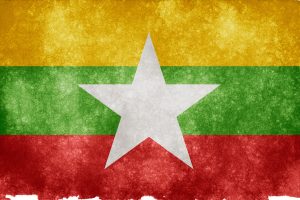The coup launched by Myanmar’s military on February 1 has important implications for the country’s democracy as well as the wider region and international community. But as the fallout from that development continues, at the domestic level, it also reveals some insights about civil-military dynamics in regimes such as the one that we had seen in Myanmar that deserve our attention and understanding.
Though “civil-military relations” – simply defined as the balance of power between civilian political institutions and the military – is a term used commonly, it can be difficult to assess and typify its exact manifestations. While the headlines can tend to focus on the extremes – be it mature democracies where there is a notion of “objective civilian control” as articulated by the late political scientist Samuel Huntington or wholly military-run dictatorships – relationships can be categorized differently in accordance with several realms including leadership, policymaking and functions exercised. In Southeast Asia, contested civil-military dynamics can be important in understanding political and security developments more generally, be it in effectively military-controlled governments such as in Thailand or even democratic contexts such as Indonesia.
Myanmar is a case in point. Despite the end of decades of direct military rule after the coming to power of the Union Solidarity and Development Party (USDP) in 2011 and then the victory of Aung San Suu Kyi’s National League for Democracy (NLD) at elections in 2015, the military’s dominance over civilian leadership dating back to its independence in 1948 persisted. The Tatmadaw, which has historically found it difficult to cede or share power – as evidenced by its previous efforts to undermine electoral outcomes and violently suppress protests – has unsurprisingly complicated efforts by the civilian government in areas such as the peace process and the treatment of the Rohingya and prevented efforts to curtail its influence necessary to rebalance civil-military relations, such as its parliamentary seat quota and control of key ministries.
Seen from this perspective, the coup in Myanmar should be seen as the breaking point that exposed the fragility of these contested civil-military dynamics and ended a decade-long process where the military had tried to share power with a civilian leadership and allow for some political reform. Elements within the military clearly felt that their frustration with the civilian government had reached its limit. And though a range of perceived NLD slights had been occurring over the past few years in the military’s eyes in spite of Aung San Suu Kyi’s public denials – including unsuccessful efforts to curtail its influence and change aspects of the constitution – the more proximate causes likely accounted for why this occurred when it did, such as the NLD’s resounding November 2020 election victory which the military has openly questioned, and military chief Min Aung Hlaing’s own political ambitions given his impending retirement from his current position in July.
To be sure, the attention to contested civil-military dynamics should by no means detract from the role of other factors in the recent coup – be it the personal ambitions of Min Aung Hlaing or the failure of various previous power-sharing arrangements – or negate the need for continuing to monitor how these dynamics evolve through the rest of 2021 and beyond in relation to broader issues such as the country’s political and economic future. But it should underscore the importance of moving beyond just the proximate causes of changes of power and taking into account more enduring structural factors at play.

































